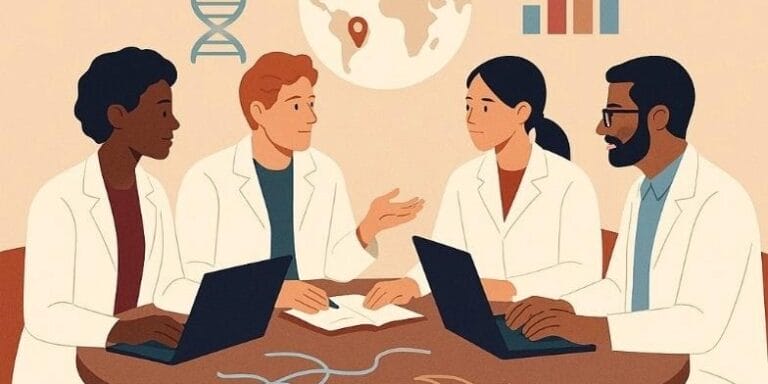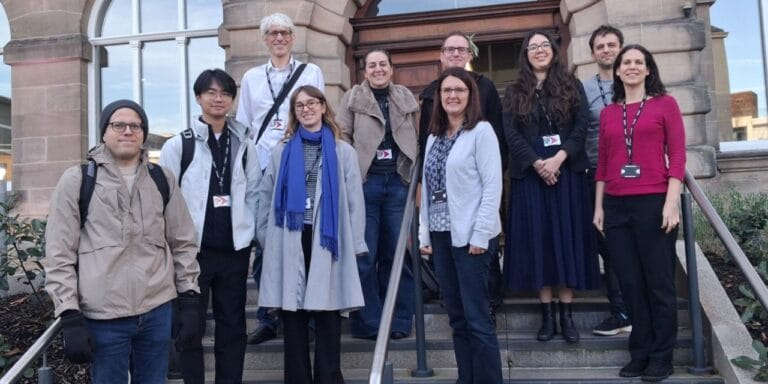For those who study malaria, the potential of genomic epidemiology to inform and improve malaria control has been obvious for decades. MalariaGEN was founded more than twenty years ago on the premise that shared genomic data resources would be valuable in the fight against malaria. Since then, our core mission has been to create infrastructure and data-sharing norms so those at the front lines of malaria control can take advantage of the insights that can be gleaned from sequencing the DNA of malaria parasites and vectors.
The rest of the world got a crash course in the potential of genomics for public health when the COVID-19 pandemic hit. Suddenly, labs with next-generation sequencers were everywhere and genetic variation was front-page news. Five years on, these labs are turning their attention to malaria and other endemic diseases. MalariaGEN has been supporting labs in Ghana, The Gambia, and Cameroon to not only generate malaria genomic data, but act as hubs that can receive samples and train other labs to generate data as well.
At the centre of this effort, trainers like Andy Mains and Dr Eyyüb Ünlü are an often unseen part of MalariaGEN’s commitment to decentralising and democratising data generation. They work with local teams to improve their ability to sequence, analyse, and share data.
In the same way that the COVID-19 pandemic is a key moment that changed the way the world understood genomics, both Andy and Eyyüb’s careers took sharp turns because of the pandemic. Andy built the lab skills that he relies on to train others in COVID-19 diagnostic “lighthouse” labs, and Eyyüb turned his hand to bioinformatics and coding projects because he was unable to attend clinics during his medical degree.
Read on to find out more about these two unsung heroes of MalariaGEN, who are helping shape the future of our network.
Andy Mains
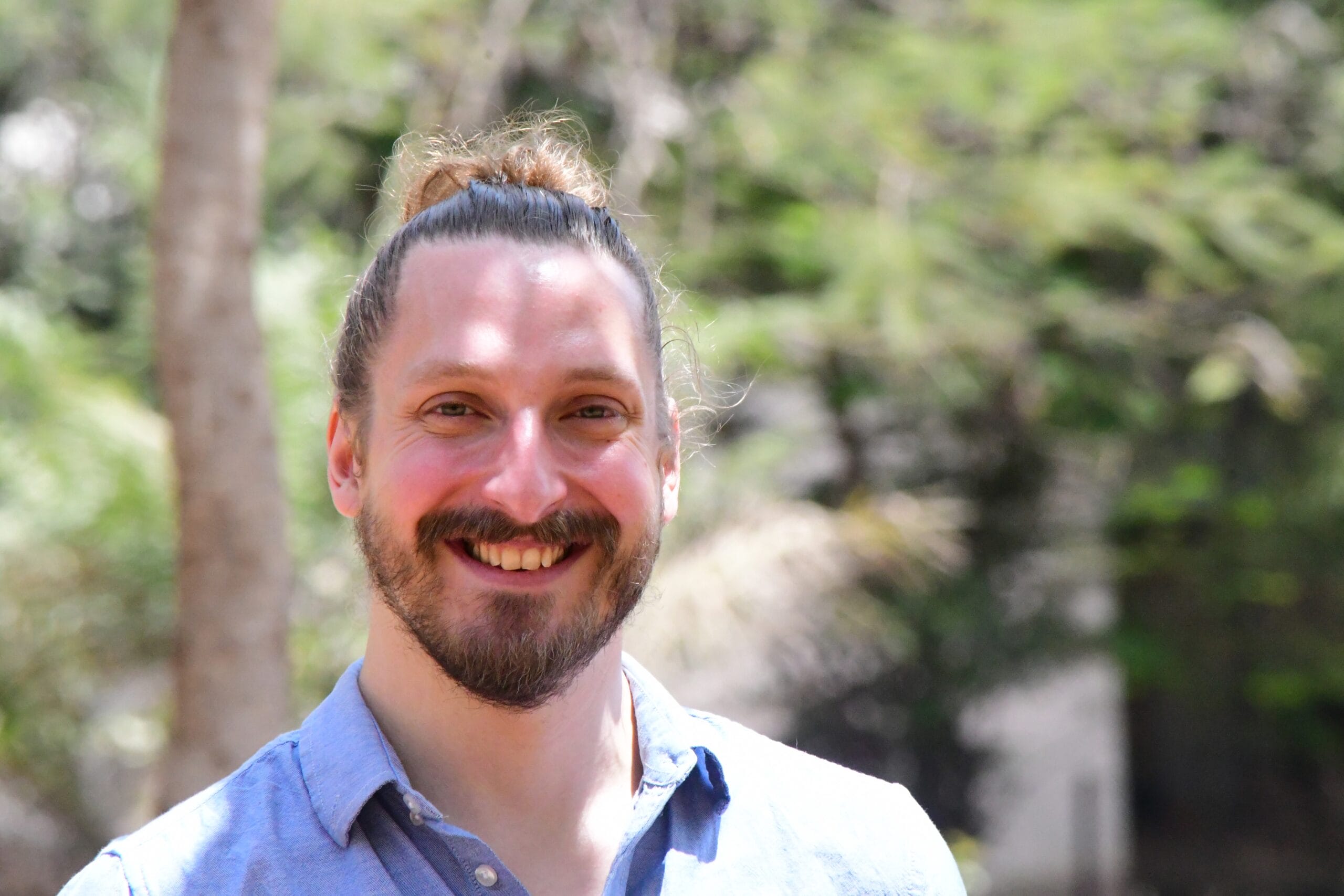 A few months after Andy finished his Masters degree in biochemistry, the first cases of COVID-19 started cropping up in England. So when a diagnostics lab in Milton Keynes started looking for volunteers, he figured he would apply his newly-minted lab skills to help people. That volunteer role turned into a job, which eventually led him to manage a team of people genotyping high volumes of COVID-19 samples every day.
A few months after Andy finished his Masters degree in biochemistry, the first cases of COVID-19 started cropping up in England. So when a diagnostics lab in Milton Keynes started looking for volunteers, he figured he would apply his newly-minted lab skills to help people. That volunteer role turned into a job, which eventually led him to manage a team of people genotyping high volumes of COVID-19 samples every day.
As the demand for COVID-19 sequencing started to decline and the lighthouse labs were closing, a role as an in-country training specialist came up at the Wellcome Sanger Institute, supporting the MalariaGEN community. The skills Andy had built perfecting library preparation, correcting contamination issues, ensuring quality control and training new staff on precise protocols were perfect for this new challenge.
Through projects funded by the National Institute of Health Research (NIHR) and the International Pathogen Surveillance Network (IPSN), Andy has spent the last three years training scientists in West and Central Africa on malaria genomic sequencing protocols. More than simply creating how-to manuals, the bespoke laboratory train-the-trainer model has been shaped by the experiences and on-the-ground realities of partners.
“The partners we've worked with have been so lovely,” says Andy. “They have shaped how we do this kind of work, from the ground up.”
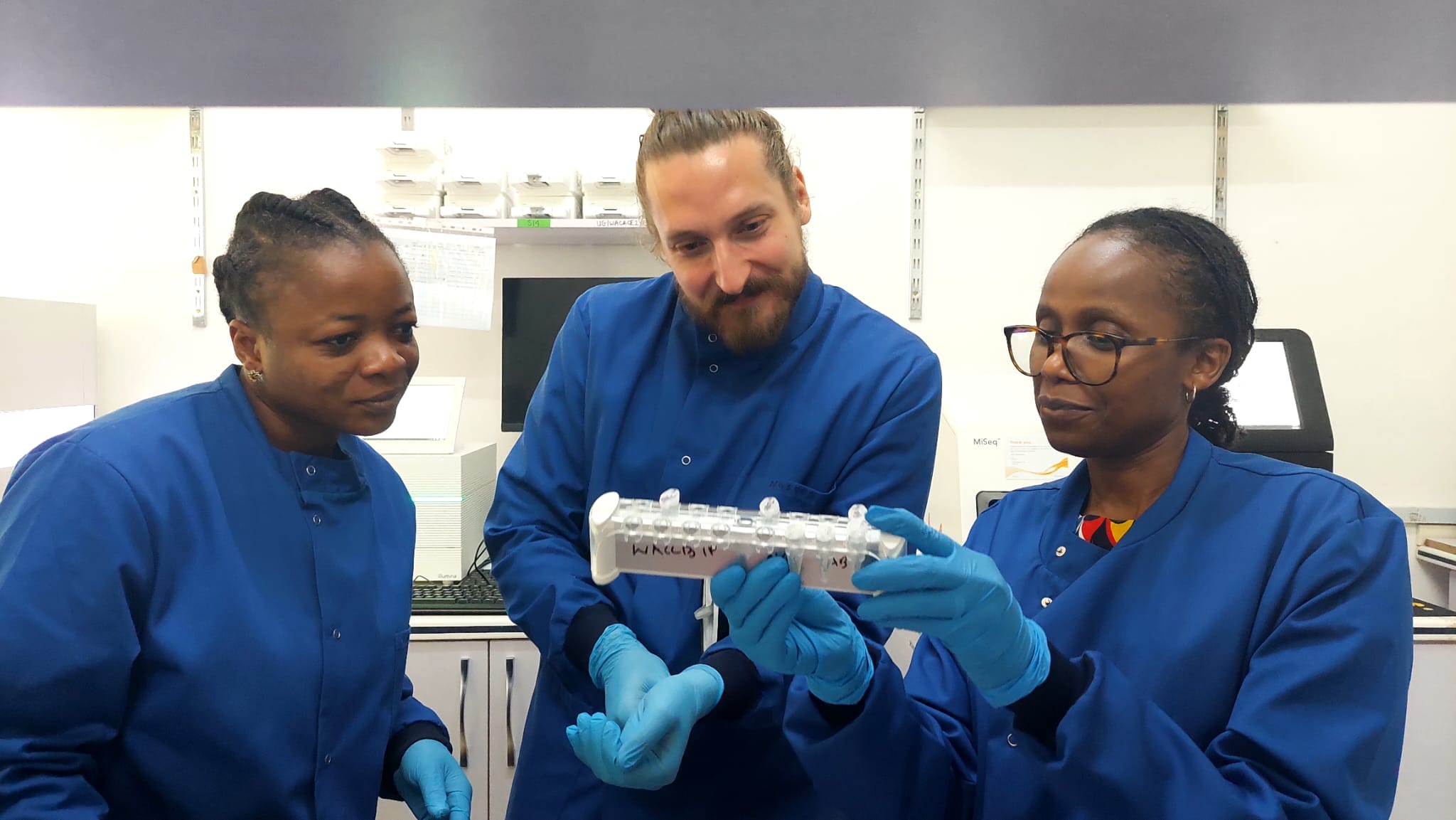
Andy and his in-country training colleagues have worked with a broad range of teams and encountered different laboratory set ups. For instance, one lab they supported has a typical state of the art facility: each step of the process from extractions to library preparation and sequencing have their own separate spaces. The challenges here were more to do with working out teething issues and then scaling.
In another lab, space was perhaps the biggest hurdle. “They have one room for everything,” says Andy. “They've done an incredible job of working around that. It’s a bit more condensed, but they have different hoods for different processes, and they’re really so on top of their contamination, which they have to be if it's all together in the same space.”
A lab in Cameroon was recently set up as a sequencing facility for malaria genomic surveillance, and it was actually Dr Eniyou and Dzidzor , key team members from the hubs in Ghana and The Gambia, who led the on-site lab training to bring the new team up to speed.
This brought its own new complexity, understanding how hands-on to be in a situation where he was no longer the main trainer. “It was a fun challenge. Luckily, both Dr Eniyou and Dzidzor are absolutely brilliant. So it made my life a lot easier.”
Andy’s values are easy to state, but a lot harder to live. And yet, as anyone who has had the pleasure of working alongside him will know, Andy lives these values every day. Through his work a group of laboratory scientists have now been trained to lead genomic surveillance at their institutions and deliver both internal and external training providing sustainability of malaria genomic surveillance at the hubs and beyond.
“I just try to do a good job and be nice to people,” he says. “I've been very lucky in that I've only ever wanted to be a scientist. And I think using science to help people is the best thing you can do.”
Eyyüb Ünlü
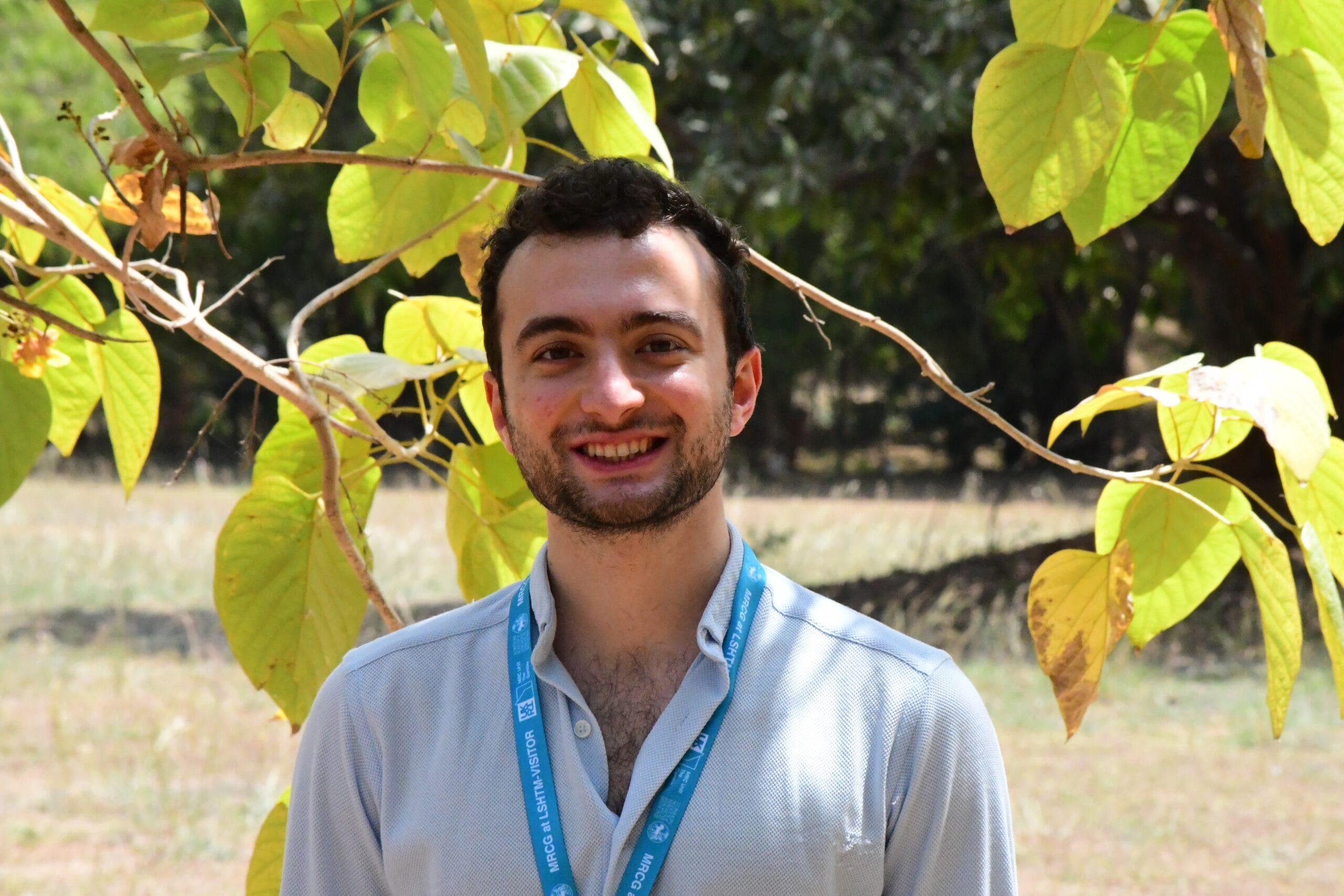 Born and raised in Türkiye, Eyyüb Ünlü was studying for his medical degree just as the COVID-19 pandemic hit. This paused his clinical training, but it provided an opportunity to stretch into a new field: bioinformatics.
Born and raised in Türkiye, Eyyüb Ünlü was studying for his medical degree just as the COVID-19 pandemic hit. This paused his clinical training, but it provided an opportunity to stretch into a new field: bioinformatics.
“My last years in medicine were impacted by the pandemic, especially my fourth year,” says Eyyüb. He explains that because he couldn’t practice in hospitals or the clinic, he had the opportunity to pursue internship opportunities. “The majority of labs were closed to students during lockdown, except one type of lab: computational ones. They were still open to students. In fact, they had more projects to do during that time!”
Eyyüb started working with a lab that was analysing the genetic diversity of SARS-CoV-2 viruses. This provided a great training ground for the tools he would later use to analyse Plasmodium genomes. “Viral genetic data is somewhat easier for a beginner to work on, because viruses only have a few genes,” explains Eyyüb. “Plasmodium parasites have more than 5,000 genes.”
In 2023, Eyyüb moved to the UK to start working in the Parasite team in the Wellcome Sanger Institute’s Genomic Surveillance Unit in 2023. As part of this role, he’s been collaborating with teams in Ghana, The Gambia, and Cameroon to turn the data they generate into actionable public health insight.
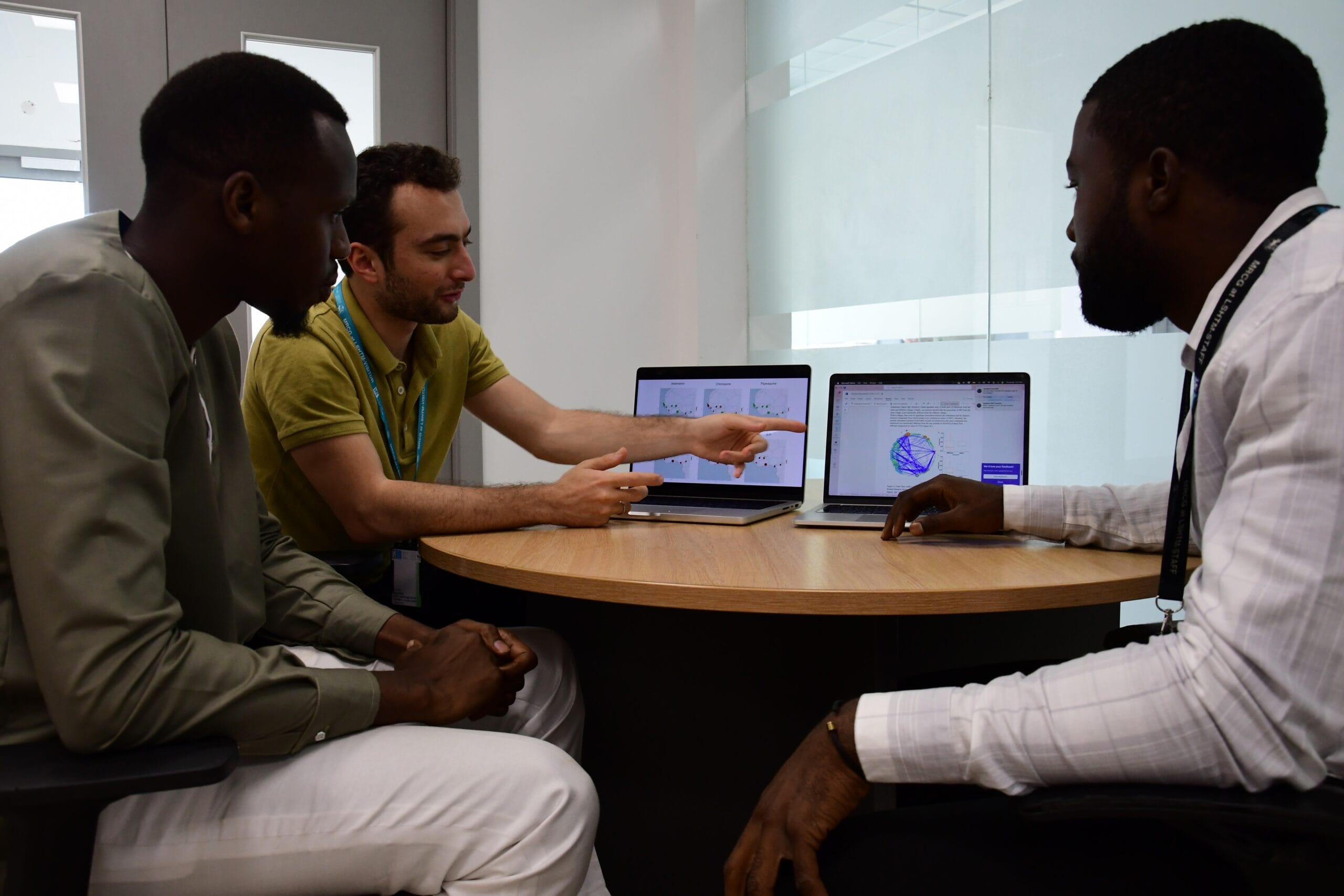
“My role in the project has two main strands: processing the amplicon sequencing data and sharing with the relevant satellite sites in the form of a genetic report card, and also analysing this data from a regional perspective,” says Eyyüb. He has also been instrumental in training local teams to upload data to shared repositories, making them more available to more people for public health and research purposes.
Supporting this same aim of making data more accessible, Eyyüb contributed to Pf-HaploAtlas, which is a web-based tool that researchers can use to explore the genetic variation in MalariaGEN’s whole genome P. falciparum resource through the interactive visualisations of haplotype frequency and distribution. He is also involved in another genomic surveillance project led by Dr Valentina Mangano where he investigates the genetic diversity and relatedness of parasite populations in the West Equatoria region of South Sudan.
From the clinic to the lab and code, Eyyüb is passionate about global health and the power of genomics to inform better decision-making. Motivated by the success of the GenRe-Mekong project in supporting malaria elimination in South-East Asia, he is hopeful that the regional hubs developing in West Africa will be instrumental in the elimination of malaria in the region.

